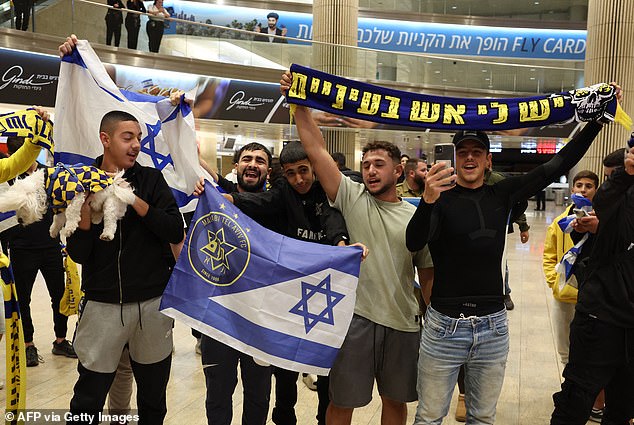
Outcry Over Israeli Club Fans’ Ban at Villa Clash Amid Security Concerns, Protests; PM Slams Decision
Maccabi Tel Aviv Fans Banned from Europa League Match in Birmingham Amid Safety Concerns
Aston Villa’s Europa League clash against Israeli club Maccabi Tel Aviv on November 6 will bar away fans from attending, following a safety directive from West Midlands Police. The decision, sparked by fears of antisemitic violence and protests, has drawn fierce condemnation from Prime Minister Keir Starmer and Jewish community leaders.
Police cited “public safety concerns” and risks of clashes, referencing antisemitic attacks targeting Maccabi supporters during a 2024 match against Ajax in Amsterdam. That incident saw 68 arrests after violent confrontations, described by Dutch Prime Minister Dick Schoof as “shocking and reprehensible.” West Midlands Police classified the Villa Park fixture as “high risk” due to intelligence linking the game to potential unrest.
Prime Minister Starmer slammed the ban on social media, stating: “This is the wrong decision. We will not tolerate antisemitism on our streets. The police must ensure all fans can enjoy the game without fear.” Aston Villa confirmed the decision, emphasizing coordination with authorities to prioritize safety.
Backlash from Jewish Communities
The move sparked outrage among Jewish groups and officials. Israel’s Foreign Minister Gideon Sa’ar labeled it “shameful,” urging UK authorities to reverse the “cowardly decision.” The Campaign Against Antisemitism criticized the ban as evidence of systemic failures to protect Jewish participation in public life.
Former Labour MP Lord Ian Austin, a Villa season-ticket holder, accused police of “capitulating to troublemakers” and undermining Birmingham’s reputation as a welcoming city. The Jewish Leadership Council called the decision “perverse,” suggesting the match should be held behind closed doors if safety couldn’t be assured.
Police Defense and Broader Context
West Midlands Police cited the Amsterdam violence as justification, stressing their “zero-tolerance” stance on hate crimes. Birmingham, where 30% of residents are Muslim, has seen frequent pro-Palestine protests since the Gaza conflict began, heightening tensions.
Under UEFA rules, clubs must allocate at least 5% of stadium capacity to away fans. However, UEFA noted local authorities retain final say on safety measures.
Implications for Future Events
Critics warn the ban sets a troubling precedent, particularly with Birmingham slated to host 2028 European Championship games. Lord Austin argued the decision jeopardizes the city’s ability to manage large-scale events, urging a police review.
The controversy underscores broader challenges in balancing security with inclusivity in sports, as authorities grapple with rising antisemitism and geopolitical tensions spilling into public events.
[Images from original article: Maccabi Tel Aviv fans at previous matches; Keir Starmer’s social media post; Villa Park stadium; Amsterdam clashes.]
Key Points:
- Safety Concerns: Police cited risks tied to antisemitic violence and protests.
- Political Reactions: Starmer, Sa’ar, and Jewish groups condemned the ban as discriminatory.
- Precedent: Critics warn of implications for future international fixtures in the UK.
The match will proceed without Maccabi supporters, spotlighting the complex interplay of security, sport, and societal tensions.


